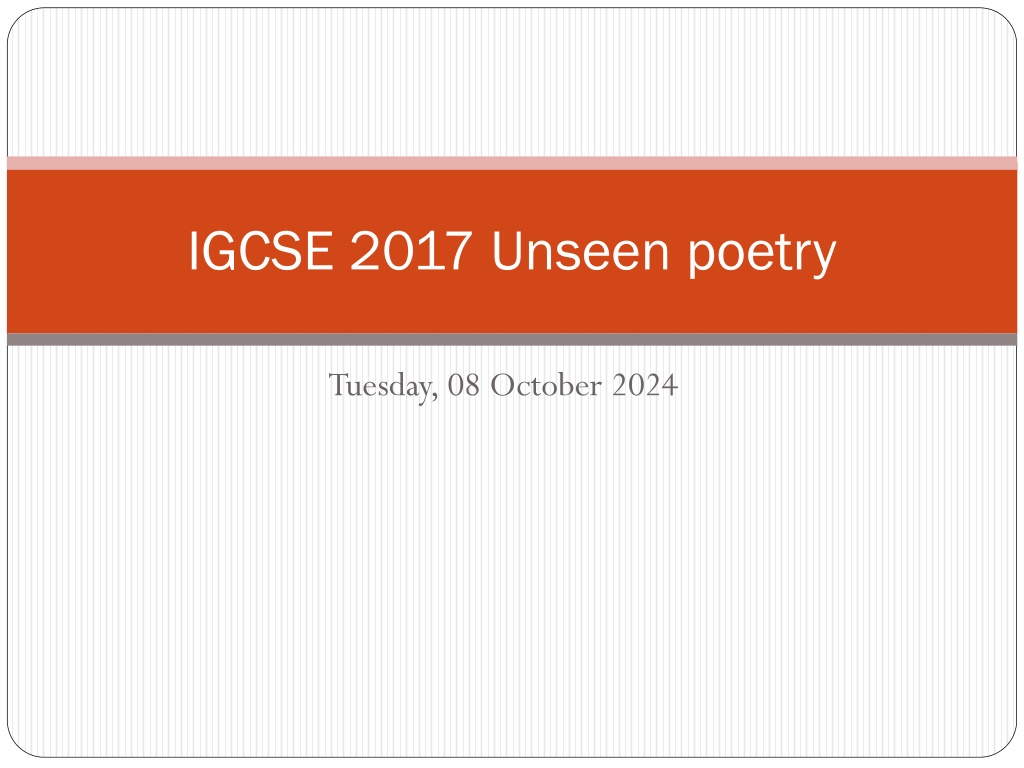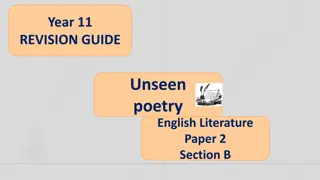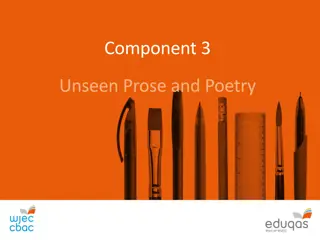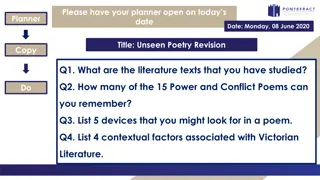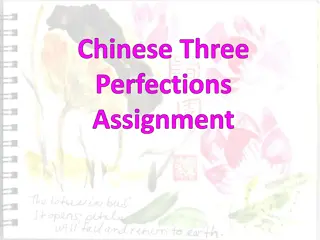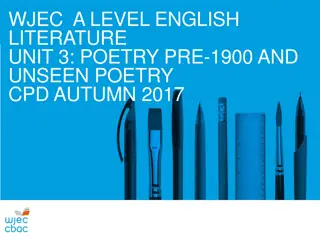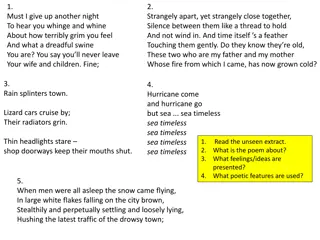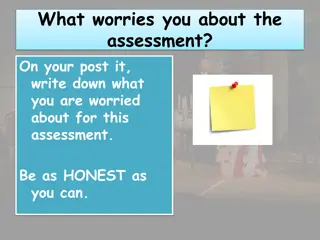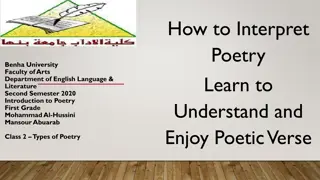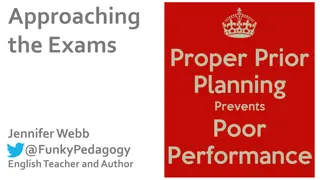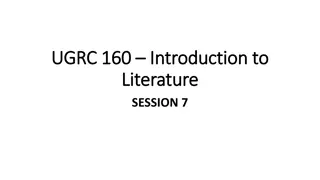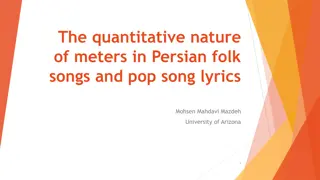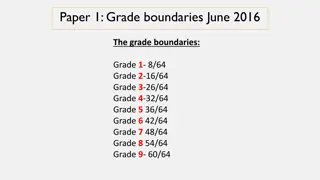Essential Guide for Analyzing Unseen Poetry in Exams
Effective strategies for approaching unseen poetry questions in exams include understanding the format, identifying voice and situation, analyzing language choices and imagery, looking for anomalies, and trusting your intuition to craft a personal response. This guide emphasizes the importance of close analysis and offers practical advice to help students excel in their exams.
Download Presentation

Please find below an Image/Link to download the presentation.
The content on the website is provided AS IS for your information and personal use only. It may not be sold, licensed, or shared on other websites without obtaining consent from the author. Download presentation by click this link. If you encounter any issues during the download, it is possible that the publisher has removed the file from their server.
E N D
Presentation Transcript
IGCSE 2017 Unseen poetry Tuesday, 08 October 2024
FORMAT OF QUESTION Always modern Bullet points assist in structuring response. Spend about 45 mins on the question. Required to have a personal response. Not required to play i-spy devices but to engage with the language and its effects. AQA GCSE: In preparing for the unseen poetry section of the examination students should experience a wide range of poetry in order to develop their ability to closely analyse unseen poems. They should be able to analyse and compare key features such as their content, theme, structure and use of language.
APPROACH Read the question and underline any key points. The bullets are there to help you use to them. Reading 1 annotate simply look for powerful language or unusual effects using structure, punctuation or language. Reading 2 Find the VOICE and SITUATION. Who is speaking and does the situation produce a recognisable tone angry, sad, scared ?
VOICE and SITUATION Who is speaking? Consider person What is their perspective on the matters under discussion? SITUATION (or setting): Where, when (era), when (hour), who is involved, what actually happens.
Now you can develop further. Language is used to create images. Simple imagery (literal imagery) tells the reader as it is . It can be very direct and effective. More complex or figurative imagery uses metaphor or simile, for example and presents more challenging images that require the reader to respond to suggestion. It is vital that you comment on the effect of language choice rather than offer bland platitudes of the makes the reader think variety.
If in Doubt: Look for the anomalies: they are interesting and will probably be important Single line stanzas, very short lines, powerful images, sudden polysyllabic words, sudden rhyme or absence of rhyme, unexpected repetition
And finally - Respond what do you feel? Trust your intuition.
An essay question HOW does the poet create a feeling of solitude in the poem: Stopping by woods on a snowy evening? In your answer, focus on: Descriptive skills Choice of language Use of structure and form you that this is an anlysis question and requires detailed discussion of the poet s techniques and quotations to prove your points This is the title_ it is relevant. What ideas does it produce for you? This question-stem tells This is the focus try to remain fixed on this idea and don t just waffle!
Stopping by Woods on a Snowy Evening: Robert Frost Whose woods these are I think I know. His house is in the village, though; He will not see me stopping here To watch his woods fill up with snow. Descriptive skills : use of the senses 5 My little horse must think it queer To stop without a farmhouse near Between the woods and frozen lake The darkest evening of the year. Language choice He gives his harness bells a shake To ask if there is some mistake. The only other sounds the sweep Of easy wind and downy flake. 10 Structure and form The woods are lovely, dark, and deep, But I have promises to keep, And miles to go before I sleep, And miles to go before I sleep. 15
My way in SCASI Setting Character Action Style Ideas
here a precise location in the woods- fill up with snow : snow hides detail and is cold and forbidding; it cuts one off Woods are suggestive of a maze, or a dangerous location Setting The narrator has no Stopping by Woods on a Snowy Evening : Robert Frost house and is cut off from the village Setting: Whose woods these are I think I know. His house is in the village, though; He will not see me stopping here To watch his woods fill up with snow. Where - is there a micro setting? when (time of day) Pathetic Fallacy 5 My little horse must think it queer To stop without a farmhouse near Between the woods and frozen lake The darkest evening of the year. without a farmhouse near He gives his harness bells a shake To ask if there is some mistake. The only other sounds the sweep Of easy wind and downy flake. 10 The lake is frozen lifeless and it is the darkest evening suggesting isolation, potential danger and nearing death, perhaps The woods are lovely, dark, and deep, But I have promises to keep, And miles to go before I sleep, And miles to go before I sleep. 15 Lovely, dark and deep note word order- deep potential for isolation He craves this loneliness but has to move on repetition accentuates his sadness and the distance. NOTE potential metaphor: Darkness and sleep both link to death is this a poem about a man craving release from the world?
First person narrator/persona. Internal thoughts presented on paper. Uncertainty in the oxymoron. Character Whose woods these are I think I know. His house is in the village, though; He will not see me stopping here To watch his woods fill up with snow. His: the antagonist- Might this be God? If so, why? And what other readings are there? Character 3: The horse is thinking and becomes a character in its own right My little horse must think it queer To stop without a farmhouse near Between the woods and frozen lake The darkest evening of the year. 5 The horse is impatient does not share the same thoughts as the rider. Personification. He gives his harness bells a shake To ask if there is some mistake. The only other sounds the sweep Of easy wind and downy flake. 10 The woods are lovely, dark, and deep, But I have promises to keep, 15 And miles to go before I sleep, And miles to go before I sleep. Reverts to original persona
ActionWhose woods these are I think I know. His house is in the village, though; He will not see me stopping here To watch his woods fill up with snow. Stopping to watch: a voyeur pause sin the middle of an unspecified journey. Unusual, emphasised in next stanza My little horse must think it queer To stop without a farmhouse near Between the woods and frozen lake The darkest evening of the year. 5 The horse tries to communicate. A vigorous movement He gives his harness bells a shake To ask if there is some mistake. The only other sounds the sweep Of easy wind and downy flake. The nature is easy and downy : peaceful and soft. The sound is sweep again gentle in this context. 10 The woods are lovely, dark, and deep, But I have promises to keep, Note that he does not set off, simply repeats the idea of a long journey his life must go on. 15 And miles to go before I sleep, And miles to go before I sleep.
Style Whose woods these are I think I know. His house is in the village, though; He will not see me stopping here To watch his woods fill up with snow. My little horse must think it queer To stop without a farmhouse near Between the woods and frozen lake The darkest evening of the year. 5 He gives his harness bells a shake To ask if there is some mistake. The only other sounds the sweep Of easy wind and downy flake. 10 The woods are lovely, dark, and deep, But I have promises to keep, 15 And miles to go before I sleep, And miles to go before I sleep.
Whose woods these are I think I know. His house is in the village, though; He will not see me stopping here To watch his woods fill up with snow. My little horse must think it queer To stop without a farmhouse near Between the woods and frozen lake The darkest evening of the year. 5 He gives his harness bells a shake To ask if there is some mistake. The only other sounds the sweep Of easy wind and downy flake. 10 The woods are lovely, dark, and deep, But I have promises to keep, 15 And miles to go before I sleep, And miles to go before I sleep.
